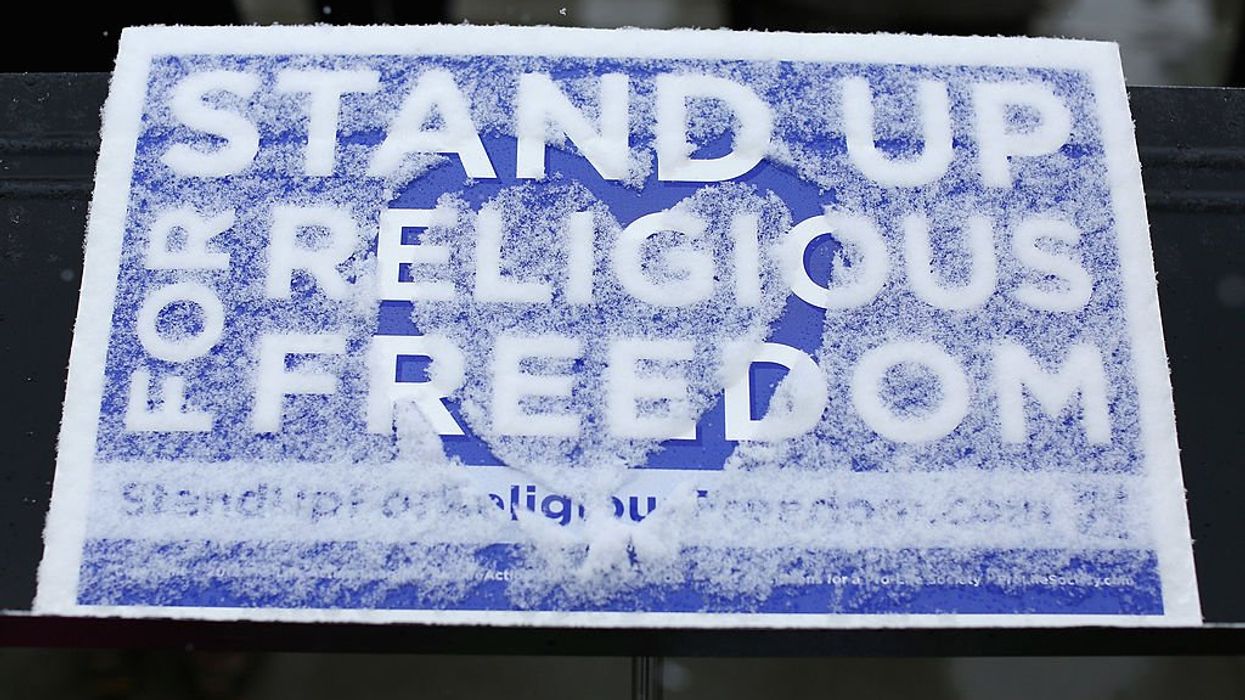
Photo by Chip Somodevilla/Getty Images

The movement to pass state RFRAs is not a legal revolution, but a modest restoration of the right to the free exercise of religion.
State legislatures in Iowa, Utah, and Georgia have joined the movement to pass state laws protecting religious freedom. Commonly known as Religious Freedom Restoration Acts, these laws should be fairly uncontroversial. They simply ensure the free exercise of religion against government interference. Yet, the laws are being labeled by opponents as attempts to foster discrimination.
Search the internet for news about “religious freedom restoration acts,” also known as RFRAs, and the results might lead one to conclude that some far-right religious plot was afoot. Typical headlines include, “Human rights campaign strongly condemns the West Virginia legislature for hastily passing dangerous religious refusal bill, calls on gov justice to veto bill” and “Religious liberty steps too far, could destroy the common good if we let it.”
To claim that protecting religious liberty is an attempt to foster discrimination against LGBT rights is to make that discriminatory claim about the First Amendment itself.
What is going on here? What is a RFRA anyway? Is it a legitimate protection of religious liberty or a license to discriminate?
Let’s begin with some history. The U.S. Supreme Court in 1990 held in Employment Division v. Smith that a law is constitutional under the free exercise clause of the First Amendment if it is “facially neutral and generally applied” — even if that law, in fact, burdens religious exercise. The decision effectively allows government actions to burden religious exercise, as long as the burden is applied to religious and nonreligious persons alike.
Congress responded by passing a bipartisan bill in the 1993-1994 session — when Bill Clinton was president — prohibiting the government from substantially burdening a person’s exercise of religion even if the burden results from a rule of general applicability. The government would need to demonstrate that its action advances a compelling state interest and is the least restrictive means of furthering that interest. This is the same standard the government must meet (called “strict scrutiny”) when burdening a fundamental right under the Constitution.
When the U.S. Supreme Court in 1997 ruled in City of Boerne v. Flores that the federal RFRA cannot be applied to state laws, individual states responded by passing their own state RFRAs. Currently, 24 states have religious freedom laws on the books.
So, let’s be clear about what a state RFRA is. The First Amendment was enacted in part to protect the people’s right to free exercise of religion. The Supreme Court in Smith held that “neutral” laws can burden the free exercise of religion, undermining the very purpose of the U.S. Constitution’s intent to protect that free exercise. A RFRA, then, is nothing more than a statute to ensure adequate protection of the fundamental right to free religious exercise.
Accusations that the movement to pass state RFRAs is a radical shift in religious liberty law in America or that such laws attempt to discriminate against LGBT rights fall flat. The First Amendment is clearly meant to protect religious individuals and organizations, so that the free exercise of religion is not jeopardized by government action.
Since the current Supreme Court precedent in Smith does not adequately protect the free exercise of religion, state RFRAs step in to fill in the gap. State RFRAs are not a novelty. They do not constitute any sort of revolutionary new protection for religious exercise. To claim that protecting religious liberty is an attempt to foster discrimination against LGBT rights is to make that discriminatory claim about the First Amendment itself.
The movement to pass state RFRAs is not a legal revolution, but a modest restoration of the fundamental right to the free exercise of religion. To oppose this restoration is to stand against the foundational role of religion in society. It is not discriminatory to demand that religious exercise be free from burdensome government action. RFRAs are not about discrimination; this is a distraction. RFRAs are about protecting the fundamental right to religious exercise that stands at the heart of our American experiment. If state governments are free to burden religious exercise with hostile laws, Americans are not free to live out their faith in the public square. That is not “nondiscrimination.” That is un-American and threatens the liberties our nation was founded to protect.
Frank DeVito is an attorney and counsel at the Napa Legal Institute.
Frank DeVito